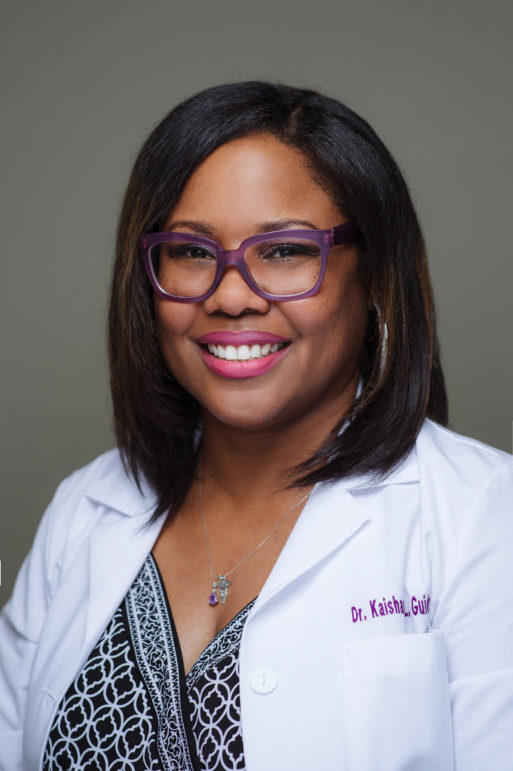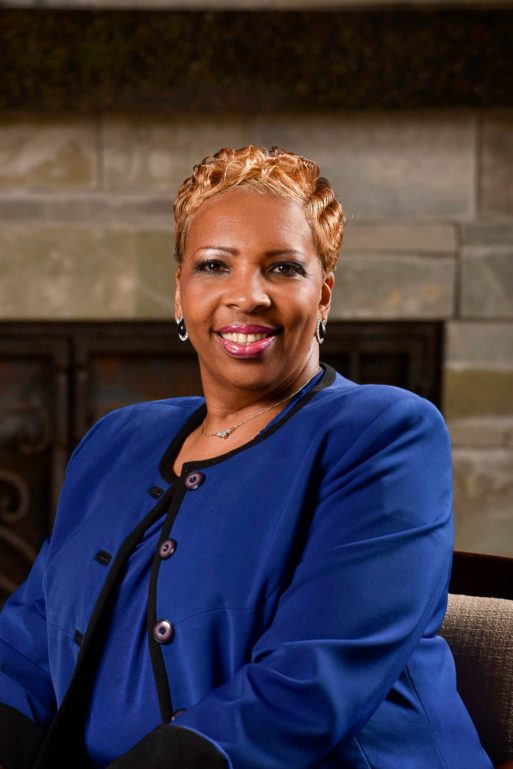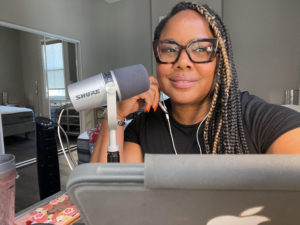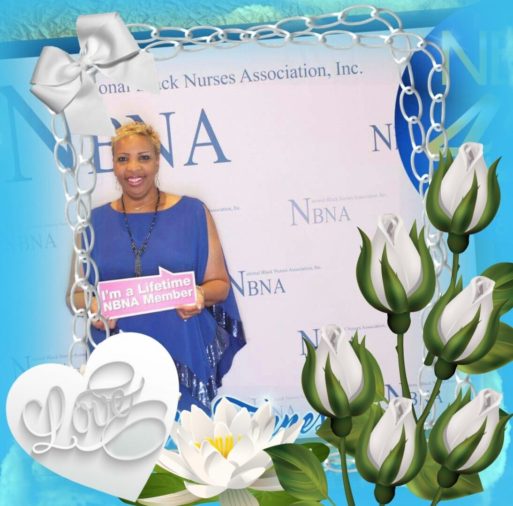
Dr. Kaishauna Guidry
Today, SevenPonds sits down with Dr. Kaishauna Guidry, M.D., and Marcia Lowe, R.N., Ph.D., to discuss their perspectives on racial disparities in end-of-life care.
Dr. Guidry is a hospice physician and CEO of Mourning Dove Medical, providing private mobile medical practice in Murrieta, California. Dr. Guidry wrote “Dr. G’s H.O.S.P.I.C.E Pocket Guide: 7 Things Physicians Need to Know to be Ready to Work” to support doctors working in end-of-life care. She is co-author of “The Real Deal about Hospice: Short Stories Highlighting the Advantages of Hospice Care for Patients and Families.”
Dr. Guidry also launched her own podcast, “Dr. G at the Heart of Healthcare,” sharing her personal and professional experiences as a means to educate the public about the benefits of palliative and hospice care.

Marcia Lowe, R.N., Ph.D.
Marcia Lowe, R.N., Ph.D., is a certified gerontological nurse and 2nd vice president of the National Black Nurses Association. As a professional nurse educator with more than 30 years of experience, Lowe is passionate about addressing racial disparities in end-of-life care and promoting quality care at end of life for patients in Birmingham, Alabama and beyond. She has been a speaker at national symposiums, conferences and events. Lowe is also a long-standing member of the Hospice and Palliative Nurses Association
Editor’s Note: These interviews have been edited for length and clarity.
What are your initial thoughts on the racial disparities in healthcare that many continue to experience throughout the United States?
Dr. Guidry: There is a great diversity in the Black community in the United States. We should first be very specific about who we are talking about, so that we can best serve the community. For example, I personally identify as a Black American. Others may identify as African American.
And while we’re seeing all of the healthcare disparities in every specialty of medicine … when it comes to end-of-life care, we’re for sure going to see it among folks who are already fighting to receive equitable care. There’s going to be the same distrust that’s always been in the health care system. And it is even more magnified in end-of-life care. So it’s a very delicate topic when we’re dealing with the end of life for the Black American or African American communities.
Marcia Lowe: The National Black Nurses Association really strives to focus on the disparities when it comes to end-of-life care, palliative care and hospice, as well as healthcare in general for the Black community. Many times, Black people do not seek out end-of-life care due to cultural and religious beliefs. Historically, the Black communities often do not trust their health care professionals. So, we still have many challenges ahead to bridge the gap.
But there is also often a lack of access. Many Black patients don’t have a primary care doctor. And then a lot of times, when they go to the hospital for something, this is a point when they might learn they have a terminal condition. So, then it’s up to the healthcare professional to go into another mode with them; to help them to accept the idea of death and what choices they have at that point.
What can healthcare providers do to bridge the gap?

Dr. Guidry, known to her podcast listeners as “Dr. G,” uses her platform to educate the public about the benefits of end-of-life care.
Dr. Guidry: Patients often don’t know what they need to know to navigate the healthcare system. They don’t know the lingo. No one has talked to them about developing a plan of care as a goal to achieve. Sometimes no one tells them about hospice when it is appropriate. Only when empowered with information can they make the right decisions.
It is painful to hear when families ask me, “Why didn’t the doctor tell us about hospice?”
Physician enrichment is necessary. Physicians are human too, right? Some of them may be fearful of dying or death. We should provide the information and allow patients and their families to make decisions with the right information to do so. They are waiting for the doctor to tell them what to do. But they simply need information to make the right choices and decisions and elect for the right care. We have to do better.
Marcia Lowe: Sometimes our physicians don’t know when to offer hospice or palliative care as a choice, or they may not offer it to Black or African Americans as readily as others. So, a lot of times patients and their families don’t really understand what services and treatments may be covered, or the benefits they offer for them and their families.
A lot of times some physicians are hesitant to offer hospice because they think that they have somehow failed when they introduce that conversation. Sometimes nurses don’t even think about it because they are so busy providing care to so many patients. So, we’ve got to educate all of them, as well. Because nurses are the most trusted profession. And a lot of times, nurses will have to interpret what the doctor is saying or sit with the patient to help them understand this disturbing information about death. So, I think nurses must be equipped with knowledge to empower patients, as well.
How is patient education key to bridging the gap?

Lowe believes in creating innovative ways to educate Black communities and healthcare providers about the benefits of palliative and hospice care.
Marcia Lowe: We just don’t want to talk about death. People need to be clear about their wishes and clear about their care and not wait until it comes down to when they are too sick to decide. Regardless of race or color, advanced care planning is key.
We just have to keep on educating people about how important it is to start these conversations. And we need to ensure they understand the benefits of palliative care or hospice care. It is most important they know what it is and when to ask for it.
We must also talk about death in our churches too. It is part of the bigger picture. It’s another way we can address a key group of people; educate them.
Dr. Guidry: My co-author and I feel like education empowers people to make the best decision for themselves. We are talking about doing a Black church tour so that we can introduce our book, which highlights the various diagnosis that are covered by the Hospice Medicare benefit. The stories in the book really highlight how patients and families can benefit from quality end-of-life care.
Any final thoughts or hopes to improve equality and access to end-of-life care for Black and African Americans?
Dr. Guidry: Time and understanding is what we have to have in order to bridge that gap. And listening. Change is not going to happen overnight; I know we have a lot of work to do. And we’re beyond needing to get started.
I hope to continue to create solutions for all these problems. I am only me, but I have a microphone. I have books. And I do have a platform. And I can offer free information to people. Just like a silly dance can go viral on TikTok, so too can how to find the best hospice care.
Marcia Lowe: We want people to be comfortable having end-of-life care discussions. And I hope they start these conversations to ensure their wishes are made very clear. Much like your purpose here at SevenPonds, I want them to “Embrace the end of life experience.”
For anyone seeking hospice care for themselves, or a loved one, Dr. Guidry encourages families to check out these 5 Simple Steps to Find and Choose the Best Hospice.

 Racial Disparities in End-of-Life Care: Bridging the Gap Through Education
Racial Disparities in End-of-Life Care: Bridging the Gap Through Education


 “Help Me, Helen”
“Help Me, Helen”
 Recovering Cremation Remains After the Los Angeles Fires
Recovering Cremation Remains After the Los Angeles Fires
 “As Tears Go By” by Marianne Faithfull
“As Tears Go By” by Marianne Faithfull














